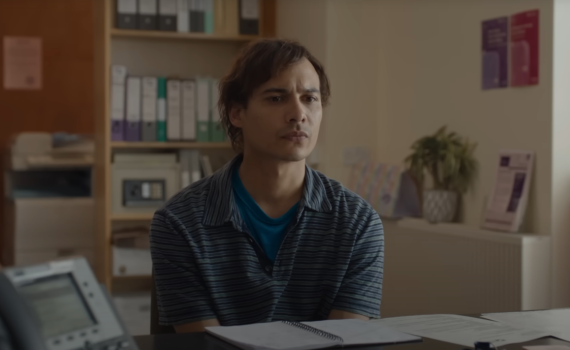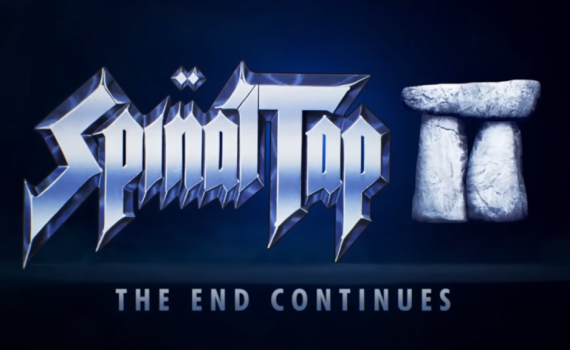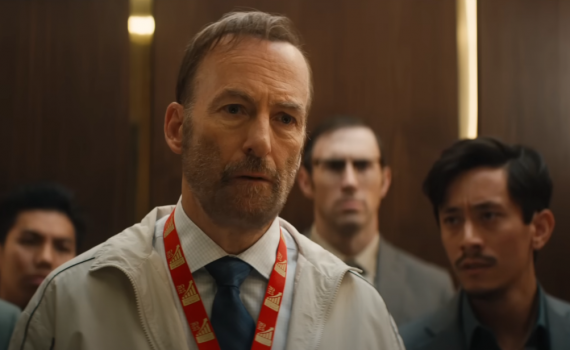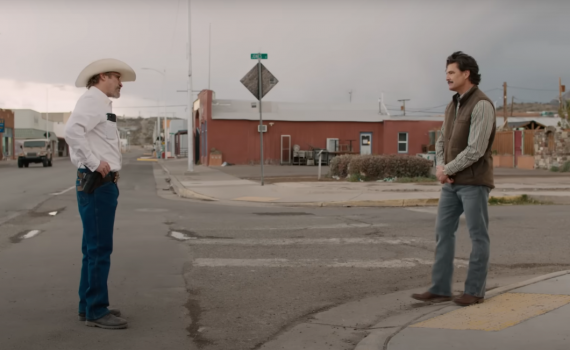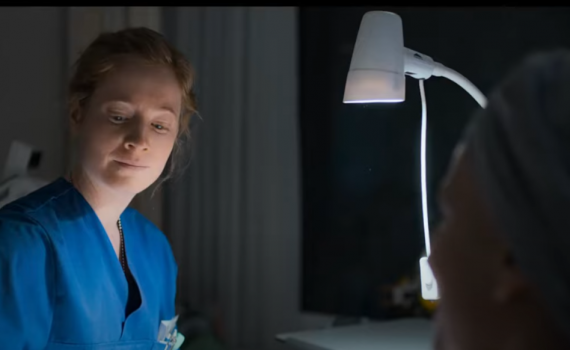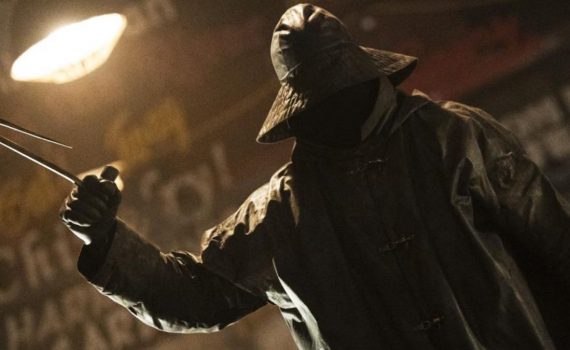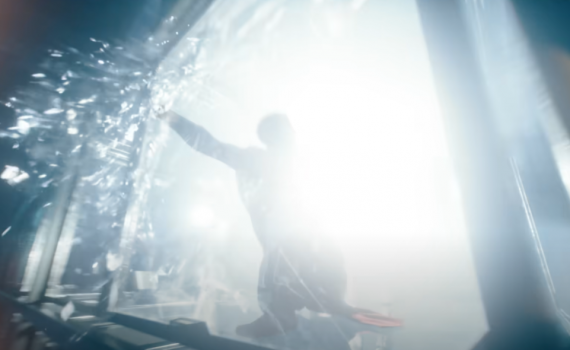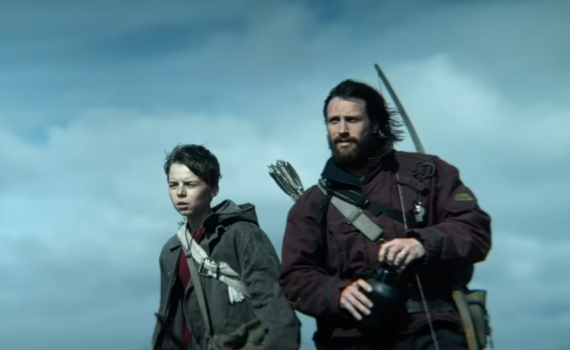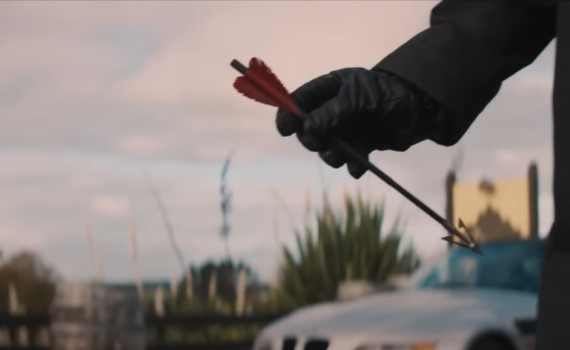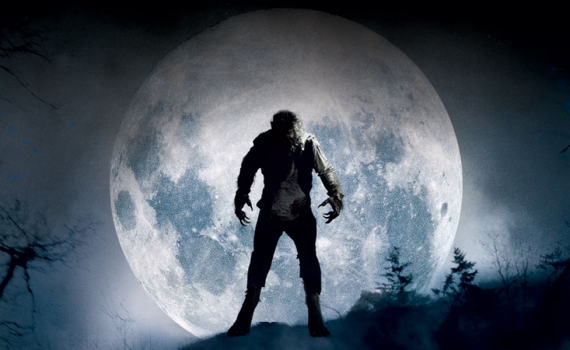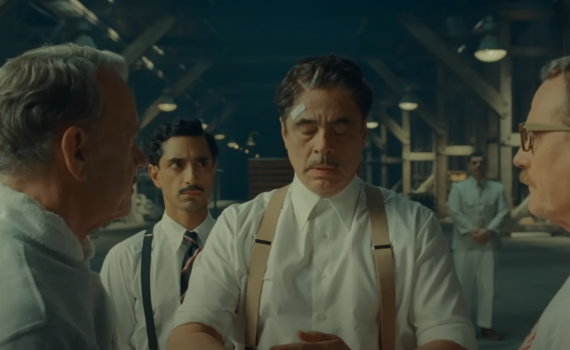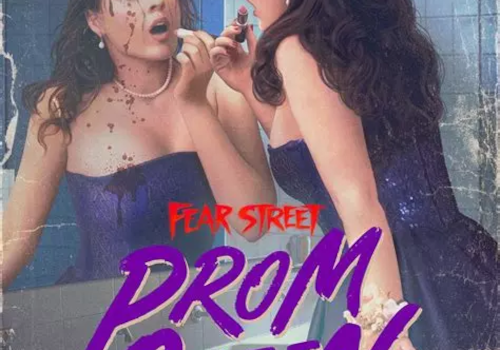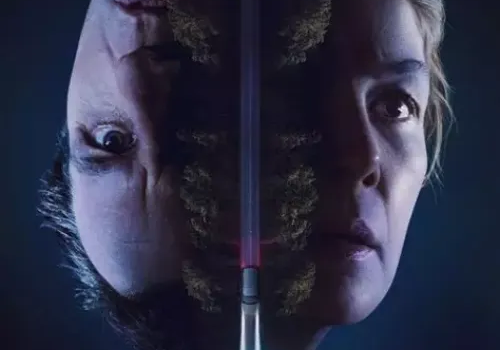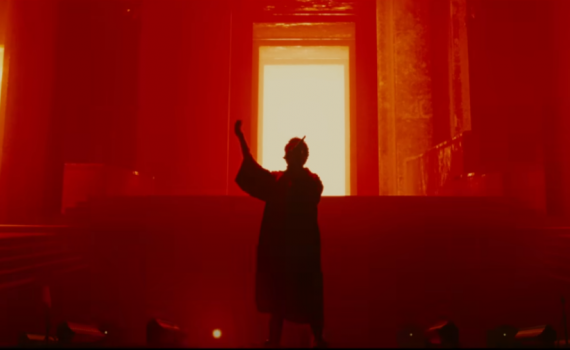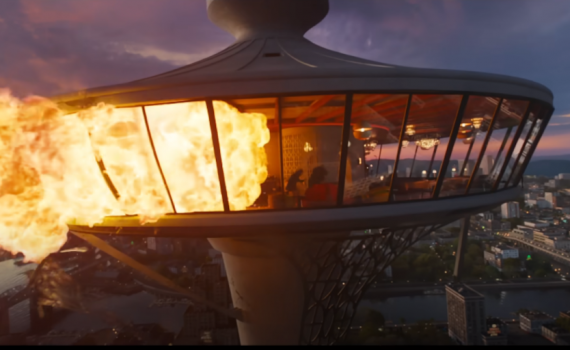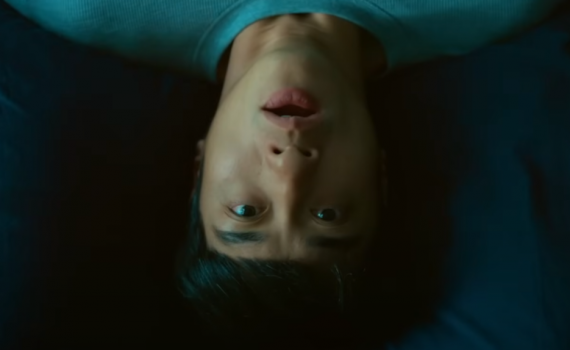Harris Dickinson takes full advantage of his mushrooming acting career by making a writing / directing debut with this defiant and supremely tightly wound drama about Mike, a former prisoner struggling to rebuild his shattered life despite a mess of obstacles threatening to trip him up no matter how hard he tugs at those fabled bootstraps.
film review
Everyone’s favourite ersatz heavy metal band is well and truly put back together for a sequel to one of the cultiest films ever cultivated, 1984’s groundbreaking and enormously influential mock-rockumentary This Is Spinal Tap. They’re strapping on their axes and slogging through their greatest hits one more time, aiming their satirical rapiers at a music industry that’s since changed beyond all recognition.
Bob Odenkirk makes a welcome return in this vehemently entertaining action comedy as Hutch Mansell, the retired government assassin who just wants a quiet life with his family, despite having a name so butch he might have climbed out of the womb with a scowl on his face and a knife behind his back.
Ari Aster’s bleak and self-indulgent neo-Western epic casts its Panavisual eye over a New Mexico town riven not only by the COVID-19 pandemic, but also by a mayoral election that divides and threatens to conquer its microcosmic society of cowboys and other, more modern, stereotypes, all of whom have exiled themselves from the wider world but can never quite achieve the level of rugged individualism they’d like.
Having played a schoolteacher in The Teachers’ Lounge and a journalist in September 5, Leonie Benesch completes a triptych of undervalued public servants in this claustrophobic, episodic drama about a nurse juggling the demands of a cluster of patients during the graveyard shift in a Swiss hospital.
Belated sequel to the derivative and half-forgotten horror potboiler about a group of teens who cover up a deadly car accident, but are pursued a year later by their own collective guilt, and more immediately by a mysterious killer with a hook for a hand.
But these days, of course, not only does the Man of Steel have to meet sky-high expectations in terms of spectacle and visual effects, but he also has to compete with an overcrowded marketplace of increasingly indistinguishable spandex-clad do-gooders. So he’d better be faster than the speeding bullet of audience fatigue, and more powerful than the locomotive of diminishing returns.
The writer and director of the zombie-not-zombie horror classic 28 Days Later reunite in a commendable if not completely successful attempt to produce a sequel that revisits the same storyline after an entire generation’s worth of time has passed, and during which they’ve hopefully matured as filmmakers here in the real, and perhaps not all that different, world.
A militant-singleton serial killer, whose MO is to target couples on Valentine’s Day, makes the mistake of picking on a pair of work colleagues (who are just friends, no honestly, definitely not going to fall in love by the end, no way) in this farcically fun mixture of horror and romcom.
Five years after his thematically interesting and thoroughly gripping adaptation of the story of The Invisible Man, Leigh Whannell returns to Universal Studios’ pool of classic monsters, only to find that someone’s clogged up the plughole with hair again.
As the schemer-in-chief, Benicio del Toro’s stone face is a perfect vehicle for Anderson’s deadpan style of humour, and his capacity to straddle even the thickest borders between good and evil, nasty and nice, callous and ingenuous, allows him to play with the darker tone of his director’s latest verbose, and unusually action-packed, screenplay.
Fear Street: Prom Queen splits the difference between its twin target audiences of ageing VHS-weaned gorehounds and their phone-thumbing teenage descendants with [pullthis id="axe"]a big axe[/pullthis] and a mordant smirk on its face. Its thrills are cheap, and it panders to your basest requirements; but then the exact same thing could be said about a Netflix subscription.
Barring a change of heart in his unimaginable dotage, Tom Cruise gives us one last hurrah for his team of super-spies whose average workday includes falling out of planes, climbing on the outside of a skyscraper, or almost drowning in a gigantic washing machine.
Babak Anvari directs Hallow Road with the thwarted urgency of helplessness, obviating any need to cut away to the accident itself, or to punctuate with exterior shots of the car speeding by, blowing up a tiny tornado of dead leaves in its wake. With such intense and convincing actors at his disposal, he makes an unnerving virtue out of the physical limitations he’s imposed on himself.
Given its largely banal story and undeniable visual flair, the obvious conclusion to draw is that Hurry Up Tomorrow is a 105-minute music video. Although director Trey Edward Shults works very hard indeed to shoot and cut the offstage action like a thriller, he drenches so much of it with a purple rain of pulsating epileptic light that it has a soporific effect which no amount of frantic cocaine-rush editing can awaken us from.
After more than a decade away, the disembodied spectre of Death returns to haunt a new shoal of hapless victims by masquerading as a series of stylishly mounted and entertainingly ridiculous ‘accidents’. In an attempt to freshen its foul breath, this time the filmmakers have gone big AND gone home – the initial premonition of mayhem that kicks everything off takes place decades in the past, therefore our conceptual baddie decides that entire generations of a family need to be wiped out.
Gloriously mental psychological thriller in which Nicolas Cage’s frayed masculinity is subjected to a series of Herculean tests by a gang of malevolent larrikins on an Australian beach, when all he wants to do is hang ten in the swell (or whatever surfers do) while reconnecting with his teenage son.
A clinical psychiatrist gets a taste of his own medicine when his treatment of a semi-schizophrenic patient backfires, so that his own grasp on reality grows ever more tenuous, taking us on an arresting, genre-splicing adventure through a version of Hong Kong choking on the fallout of the 2008 financial crash.
